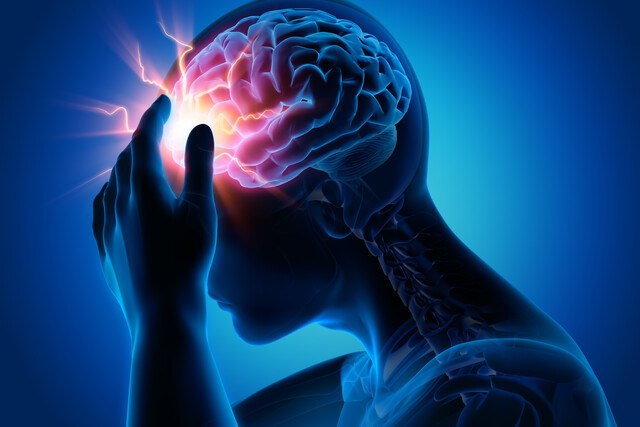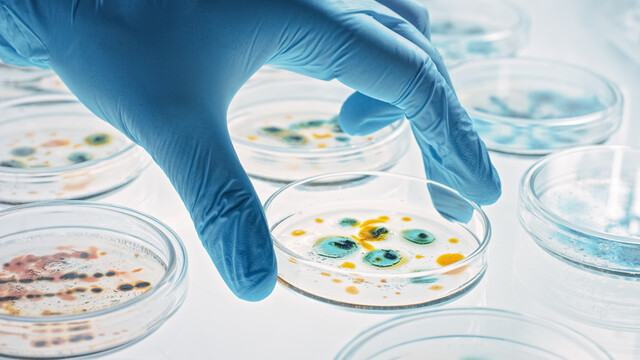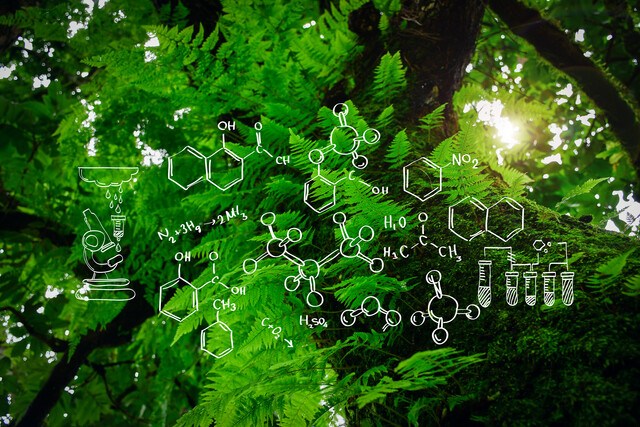Online Class: Introduction to Cell and Molecular Biology

no certificate
with CEU Certificate*
-
20Lessons
-
47Exams &
Assignments -
1,272Students
have taken this course -
18Hours
average time -
1.8CEUs
Course Description
The Fascinating World of Cell and Molecular Biology
From microorganisms invisible to the naked eye, to the intricate internal workings of larger organisms, cell and molecular biology plays a pivotal role in shaping our understanding of life. This discipline doesn't merely remain confined to the boundaries of a laboratory. Instead, it influences diverse fields, from environmental science to the frontiers of healthcare and medicine.
Course Overview
In this comprehensive course, we will guide you through the mesmerizing landscape of cell and microbiology. Our journey will begin by exploring the foundational building blocks of all life forms. Understand the remarkable components within living entities, and grasp the interplay between organisms and their environment. How do living organisms thrive, adapt, and sometimes clash with external factors?
As we delve deeper, the course will introduce you to the intricacies of DNA and RNA - the genetic blueprints of life. Dive into the fascinating world of protein structures, and follow their journey along cellular pathways. For those with a keen interest in current biomedical research, our lessons will also provide insights into pressing issues such as pathogen mechanisms, the emergence of cancer cells, and the much-debated realm of stem cell research.
Did you know that, as of 2023, an estimated $5.8 billion has been invested in stem cell research globally? Such research promises revolutionary therapies for conditions previously deemed untreatable.
Cell and molecular biology, though intricate in nature, holds the keys to many of the mysteries surrounding our existence. Beyond its numerous applications in various sectors, the core principles of this subject illuminate many phenomena we encounter daily. By the end of this course, not only will you have gained profound knowledge, but you will also develop an enriched perspective of the world around you.
Each lesson is designed meticulously, ensuring a blend of theoretical knowledge, current statistics, and real-world applications. With a combination of assignments and exams, we evaluate your progress and understanding of each module.
Why Choose This Course?
Cell and molecular biology is not just a subject; it's a lens through which one can view the world. The implications of this field are vast and, as the data suggests, its relevance is only growing. With increasing investments in biotechnological research and its applications in medicine, agriculture, and environmental science, expertise in this area is highly sought after.
So, if you're curious about life's inner workings or wish to pursue a career in the expansive field of biology, this course promises to be a fulfilling and enlightening experience. Dive in, and let's begin this incredible journey together!
- Completely Online
- Self-Paced
- 6 Months to Complete
- 24/7 Availability
- Start Anytime
- PC & Mac Compatible
- Android & iOS Friendly
- Accredited CEUs

Course Lessons
Lesson 1. Cell and Molecular Science: From DNA to Frontiers
 Lesson 1 Video
Lesson 1 Video Review Practice Worksheet: Lesson-1-Downloadable-10912.pdf
Review Practice Worksheet: Lesson-1-Downloadable-10912.pdf Lesson discussions: Reasons for Taking this Course
Lesson discussions: Reasons for Taking this Course Complete Assignment: An Introduction
Complete Assignment: An Introduction Assessment: Quiz for Lesson 1 : Understanding Cell and Molecular Biology and its History
Assessment: Quiz for Lesson 1 : Understanding Cell and Molecular Biology and its History Assessment: Lesson 1 Review Exam
Assessment: Lesson 1 Review Exam
Lesson 2. Cellular Alchemy: The Energetic and Structural Fundamentals of Life
 Lesson 2 Video
Lesson 2 Video Review Practice Worksheet: Lesson-2-WordSearch-10913.pdf
Review Practice Worksheet: Lesson-2-WordSearch-10913.pdf Complete: Lesson 2 Activity
Complete: Lesson 2 Activity Assessment: Quiz for Lesson 2 : Cellular Functioning & Composition
Assessment: Quiz for Lesson 2 : Cellular Functioning & Composition Assessment: Lesson 2 Review Exam
Assessment: Lesson 2 Review Exam
Lesson 3. Energy and Metabolism: The Chemical Dance of Life
 Lesson 3 Video
Lesson 3 Video Review Practice Worksheet: Lesson-3-WordSearch-10914.pdf
Review Practice Worksheet: Lesson-3-WordSearch-10914.pdf Assessment: Quiz for Lesson 3 : Chemical Foundations
Assessment: Quiz for Lesson 3 : Chemical Foundations Assessment: Lesson 3 Review Exam
Assessment: Lesson 3 Review Exam
Lesson 4. DNA: Life's Blueprint
 Lesson 4 Video
Lesson 4 Video Review Practice Worksheet: Lesson-4-Downloadable-10915.pdf
Review Practice Worksheet: Lesson-4-Downloadable-10915.pdf Assessment: Quiz for Lesson 4 : DNA Properties
Assessment: Quiz for Lesson 4 : DNA Properties Assessment: Lesson 4 Review Exam
Assessment: Lesson 4 Review Exam
Lesson 5. Proteins: The Pillars of Cellular Functionality
 Lesson 5 Video
Lesson 5 Video Review Practice Worksheet: Lesson-5-Activity-10916.pdf
Review Practice Worksheet: Lesson-5-Activity-10916.pdf Complete: Lesson 5 Activity
Complete: Lesson 5 Activity Assessment: Quiz for Lesson 5 : Protein Structure and Function
Assessment: Quiz for Lesson 5 : Protein Structure and Function Assessment: Lesson 5 Review Exam
Assessment: Lesson 5 Review Exam
Lesson 6. Protein Dynamics: The Regulatory Symphony
 Lesson 6 Video
Lesson 6 Video Review Practice Worksheet: Lesson-6-Downloadable-10917.pdf
Review Practice Worksheet: Lesson-6-Downloadable-10917.pdf Assessment: Quiz for Lesson 6 : Regulation of Protein Levels and Activity
Assessment: Quiz for Lesson 6 : Regulation of Protein Levels and Activity Assessment: Lesson 6 Review Exam
Assessment: Lesson 6 Review Exam
Lesson 7. Dynamic Gateways: Exploring the Cell Membrane
 Lesson 7 Video
Lesson 7 Video Review Practice Worksheet: Lesson-7-WorkSheet-10918.pdf
Review Practice Worksheet: Lesson-7-WorkSheet-10918.pdf Assessment: Quiz for Lesson 7 :Cellular Membrane Structure and Function
Assessment: Quiz for Lesson 7 :Cellular Membrane Structure and Function Assessment: Lesson 7 Review Exam
Assessment: Lesson 7 Review Exam
Lesson 8. Molecular Genetics 101
 Lesson 8 Video
Lesson 8 Video Review Practice Worksheet: Lesson-8-Activity-10919.pdf
Review Practice Worksheet: Lesson-8-Activity-10919.pdf Assessment: Quiz for Lesson 8 : Basic Molecular Genetic Mechanisms
Assessment: Quiz for Lesson 8 : Basic Molecular Genetic Mechanisms Assessment: Lesson 8 Review Exam
Assessment: Lesson 8 Review Exam
Lesson 9. Cell Cycle Dynamics: Prokaryotes vs Eukaryotes
 Lesson 9 Video
Lesson 9 Video Review Practice Worksheet: Lesson-9-Downloadable-10920.pdf
Review Practice Worksheet: Lesson-9-Downloadable-10920.pdf Assessment: Quiz for Lesson 9 : Cell Birth, Lineage and Death
Assessment: Quiz for Lesson 9 : Cell Birth, Lineage and Death Assessment: Lesson 9 Review Exam
Assessment: Lesson 9 Review Exam
Lesson 10. Cell Cycles and the Intricacy of Cellular Processes
 Lesson 10 Video
Lesson 10 Video Review Practice Worksheet: Lesson-10-HomeWork-10921.pdf
Review Practice Worksheet: Lesson-10-HomeWork-10921.pdf Assessment: Quiz for Lesson 10 :Cell Cycle and Checkpoints in Cell Cycle Regulation
Assessment: Quiz for Lesson 10 :Cell Cycle and Checkpoints in Cell Cycle Regulation Assessment: Lesson 10 Review Exam
Assessment: Lesson 10 Review Exam
Lesson 11. Cell Communication: Ligands, Receptors, and Beyond
 Lesson 11 Video
Lesson 11 Video Review Practice Worksheet: Lesson-11-HomeWork-10922.pdf
Review Practice Worksheet: Lesson-11-HomeWork-10922.pdf Assessment: Quiz for Lesson 11 : Signaling at the Cell Surface
Assessment: Quiz for Lesson 11 : Signaling at the Cell Surface Assessment: Lesson 11 Review Exam
Assessment: Lesson 11 Review Exam
Lesson 12. The Symphony of Signaling Pathways in Cells
 Lesson 12 Video
Lesson 12 Video Review Practice Worksheet: Lesson-12-Downloadable-10923.pdf
Review Practice Worksheet: Lesson-12-Downloadable-10923.pdf Assessment: Quiz for Lesson 12 : Signaling Pathways that Control Gene Activity
Assessment: Quiz for Lesson 12 : Signaling Pathways that Control Gene Activity Assessment: Lesson 12 Review Exam
Assessment: Lesson 12 Review Exam
Lesson 13. The Art and Science of Cellular Transport: A Journey Through Ion and Molecule Movement
 Lesson 13 Video
Lesson 13 Video Review Practice Worksheet: Lesson-13-WordSearch-10924.pdf
Review Practice Worksheet: Lesson-13-WordSearch-10924.pdf Assessment: Quiz for Lesson 13 : Transport of Ions and Small Molecules across Cell Membranes
Assessment: Quiz for Lesson 13 : Transport of Ions and Small Molecules across Cell Membranes Assessment: Lesson 13 Review Exam
Assessment: Lesson 13 Review Exam
Lesson 14. Proteins on the Move
 Lesson 14 Video
Lesson 14 Video Review Practice Worksheet: Lesson-14-Downloadable-10925.pdf
Review Practice Worksheet: Lesson-14-Downloadable-10925.pdf Assessment: Quiz for Lesson 14 : Protein Solubility
Assessment: Quiz for Lesson 14 : Protein Solubility Assessment: Lesson 14 Review Exam
Assessment: Lesson 14 Review Exam
Lesson 15. Epithelial Tissue: Structure, Function, and Impact
 Lesson 15 Video
Lesson 15 Video Review Practice Worksheet: Lesson-15-WorkSheet-10926.pdf
Review Practice Worksheet: Lesson-15-WorkSheet-10926.pdf Complete: Lesson 15 Activity
Complete: Lesson 15 Activity Assessment: Quiz for Lesson 15 : Epitheliums
Assessment: Quiz for Lesson 15 : Epitheliums Assessment: Lesson 15 Review Exam
Assessment: Lesson 15 Review Exam
Lesson 16. The Intricacies of Cancer: A Deep Dive into Cell Mutation and Disease
 Lesson 16 Video
Lesson 16 Video Review Practice Worksheet: Lesson-16-WordSearch-10927.pdf
Review Practice Worksheet: Lesson-16-WordSearch-10927.pdf Complete: Lesson 16 Activity
Complete: Lesson 16 Activity Assessment: Quiz for Lesson 16 : Cancer
Assessment: Quiz for Lesson 16 : Cancer Assessment: Lesson 16 Review Exam
Assessment: Lesson 16 Review Exam
Lesson 17. Decoding Cancer: The Genetic and Cellular Saga
 Lesson 17 Video
Lesson 17 Video Review Practice Worksheet: Lesson-17-WorkSheet-10928.pdf
Review Practice Worksheet: Lesson-17-WorkSheet-10928.pdf Assessment: Quiz for Lesson 17 : Cancer Part Two
Assessment: Quiz for Lesson 17 : Cancer Part Two Assessment: Lesson 17 Review Exam
Assessment: Lesson 17 Review Exam
Lesson 18. Pathogenic Life Cycles and Transmission Modes
 Lesson 18 Video
Lesson 18 Video Review Practice Worksheet: Lesson-18-HomeWork-10929.pdf
Review Practice Worksheet: Lesson-18-HomeWork-10929.pdf Assessment: Quiz for Lesson 18 : Pathogens
Assessment: Quiz for Lesson 18 : Pathogens Assessment: Lesson 18 Review Exam
Assessment: Lesson 18 Review Exam
Lesson 19. Bioinformatics: Bridging Biology and Technology
 Lesson 19 Video
Lesson 19 Video Review Practice Worksheet: Lesson-19-WorkSheet-10930.pdf
Review Practice Worksheet: Lesson-19-WorkSheet-10930.pdf Assessment: Quiz for Lesson 19 : Bioinformatics
Assessment: Quiz for Lesson 19 : Bioinformatics Assessment: Lesson 19 Review Exam
Assessment: Lesson 19 Review Exam
Lesson 20. Stem Cell Research: Bridging Science and Ethics
 Lesson 20 Video
Lesson 20 Video Review Practice Worksheet: Lesson-20-HomeWork-10931.pdf
Review Practice Worksheet: Lesson-20-HomeWork-10931.pdf Lesson discussions: End of Course Poll; Course Comments
Lesson discussions: End of Course Poll; Course Comments Complete: Lesson 20 Activity
Complete: Lesson 20 Activity Assessment: Quiz for Lesson 20 : Stem Cell Research
Assessment: Quiz for Lesson 20 : Stem Cell Research Assessment: The Final Exam
Assessment: The Final Exam Assessment: Lesson 20 Review Exam
Assessment: Lesson 20 Review Exam
Learning Outcomes
- Define the historical milestones in molecular biology, including key discoveries and contributions, and evaluate their impact on current scientific practices.
- Identify and describe the applications of molecular biology in medicine, agriculture, and environmental sustainability, and assess their significance in addressing contemporary challenges.
- Demonstrate understanding of cell theory by explaining the three main tenets: unity of life, continuity, and cellular autonomy.
- Recognize the similarities and differences between prokaryotic and eukaryotic cells, including their structural components and functions.
- Demonstrate understanding of energy metabolism by distinguishing between autotrophs and heterotrophs, and explaining their ecological roles.
- Identify the role of carbon in forming complex organic molecules and its significance in biosynthetic and degradative processes.
- Define DNA and RNA structures by identifying key components, including nucleotides, nitrogenous bases, and strand formations.
- Demonstrate protein synthesis by describing the roles of DNA and RNA in transcription and translation, including the function of mRNA, tRNA, and rRNA.
- Describe the role of secondary structures such as alpha helices and beta sheets in the stability and function of proteins.
- Explain how techniques like X-ray crystallography and NMR spectroscopy contribute to identifying and characterizing protein structures.
- Define how phosphorylation alters protein function to regulate cellular activities by examining specific examples of protein complexes within the cell.
- Identify key differences between positive and negative gene regulation mechanisms and describe how these mechanisms impact enzyme synthesis in prokaryotic cells.
- Define and describe the structure and composition of the cellular membrane, identifying its main components, such as the phospholipid bilayer and membrane proteins.
- Demonstrate mastery of lesson content at levels of 70% or higher.
Additional Course Information

- Document Your Lifelong Learning Achievements
- Earn an Official Certificate Documenting Course Hours and CEUs
- Verify Your Certificate with a Unique Serial Number Online
- View and Share Your Certificate Online or Download/Print as PDF
- Display Your Certificate on Your Resume and Promote Your Achievements Using Social Media

Choose Your Subscription Plan
No Certificate / No CEUs
This course only
| Includes certificate | X |
| Includes CEUs | X |
| Self-paced |

|
| Instructor support |

|
| Time to complete | 6 months |
| No. of courses | 1 course |
Certificate & CEUs
This course only
| Includes certificate |

|
| Includes CEUs |

|
| Self-paced |

|
| Instructor support |

|
| Time to complete | 6 months |
| No. of courses | 1 course |
Certificates & CEUs
Includes all 600+ courses
| Includes certificate |

|
| Includes CEUs |

|
| Self-paced |

|
| Instructor support |

|
| Time to complete | 12 Months |
| No. of courses | 600+ |
Certificates & CEUs
Includes all 600+ courses
| Includes certificate |

|
| Includes CEUs |

|
| Self-paced |

|
| Instructor support |

|
| Time to complete | 24 Months |
| No. of courses | 600+ |
Student Testimonials
- "I really liked the instruction that was available for this class. I was pushed to my limit of understanding." -- Kathy W.
- "This course was great and the instructor was amazing. The videos at the end of each lesson were most helpful because it helps me to learn more when hearing something than reading." -- Sophia C.
- "Instructor was just great...kept on motivating me. I found all the topics helpful and very interesting. The tutor was always there to help me out and I had a great memorable time. Thanks Universal Class.. I'm planning to take on another course." -- Kenneth A.
- "Easy access around the course." -- Carrie M.
Related Courses
-
 74 hours
7.4 CEUs
Medical Billing and Coding Course Bundle
+ More Info
74 hours
7.4 CEUs
Medical Billing and Coding Course Bundle
+ More Info
-
 33 hours
3.3 CEUs
Comprehensive Medical Terminology 1 & 2
+ More Info
33 hours
3.3 CEUs
Comprehensive Medical Terminology 1 & 2
+ More Info
-
 17 hours
1.7 CEUs
ICD-10: Medical Coding
+ More Info
17 hours
1.7 CEUs
ICD-10: Medical Coding
+ More Info
-
 17 hours
1.7 CEUs
Medical Terminology 201
+ More Info
17 hours
1.7 CEUs
Medical Terminology 201
+ More Info
-
 6 hours
0.6 CEUs
HIPAA Compliance 101
+ More Info
6 hours
0.6 CEUs
HIPAA Compliance 101
+ More Info
-
 7 hours
0.7 CEUs
Understanding Concussions
+ More Info
7 hours
0.7 CEUs
Understanding Concussions
+ More Info
-
 18 hours
1.8 CEUs
Medical Terminology 101
+ More Info
18 hours
1.8 CEUs
Medical Terminology 101
+ More Info






